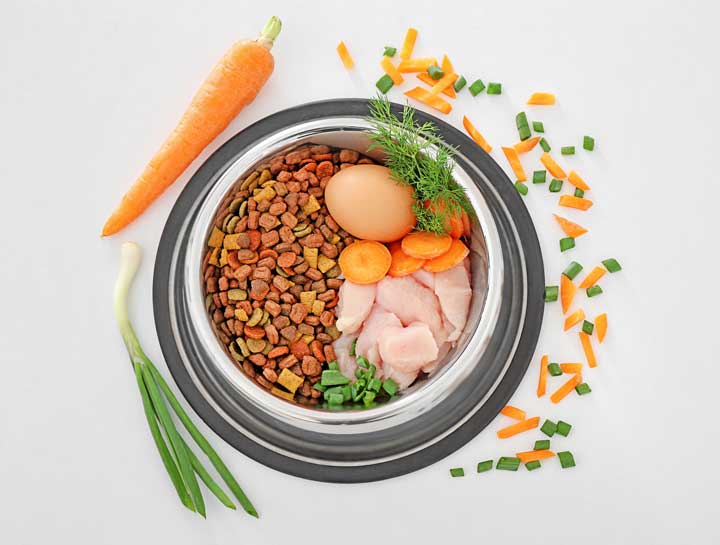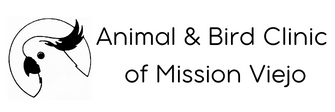Prescription & Holistic Diets
Veterinarian recommended supplements and food.
Recommended Supplements
Nutritional supplements can be very beneficial for your pet, no matter what you are feeding them. Because your veterinarian knows your pet’s health, talk with them about what may be right for your pet.
Missing Link: Powdered whole food supplement. Contains omega fatty acids, enzymes, vitamins, and minerals. These work synergistically to support healthy skin & coat, promote healthy digestion, increase joint & muscle strength, and stimulate the immune system.
Omega Fatty Acids: Such as Just Food for Dogs or Welactin containing EPA and DHA which inhibits tumor growth, decreases allergic response and supports kidney function, and immune and nervous systems.
Dasuquin: Contains glucosamine, MSM, and chondroitin to increase the synthesis of joint fluid, which relieves pain.
Probiotics: Such as Just Food for Dogs or Fortiflora to help support a healthy microbiome in the digestive tract.
SP Whole Body Support: Provides general multisystem support for all body systems.
Mega C: Powdered Vitamin C & minerals to strengthen ligaments & tendons and boost the immune system.
Making The Switch
Be sure to make a slow transition; food changes should always be made gradually. The best way to introduce new food to your pet depends on their age, history of GI sensitivity, and previous exposure to food variety.
Young dogs with no known sensitive stomach / previous food variety:
- Day 1-3 feed 25% homemade food mixed with 75% previous food.
- Day 4-6 feed 50% homemade food mixed with 50% previous food.
- Day 7-9 feed 75% homemade food mixed with 25% previous food.
- Day 10 and beyond feed 100% homemade food
Older dogs / known sensitive stomach / lifelong dry food diet:
- Week 1 feed 25% homemade food mixed with 75% previous food.
- Week 2 feed 50% homemade food mixed with 50% previous food.
- Week 3 feed 75% homemade food mixed with 25% previous food.
- Week 4 and beyond feed 100% homemade food
Adding in the supplements: Start supplements once your pet has adjusted to 100% new food. Introduce one new supplement every 3 days to ensure each one agrees with your pet’s tummy. Once all supplements have been introduced, add whole food supplements, omega fatty acids, probiotics, and green food sources. It is important to keep variety and diversity in proteins, grains, and vegetables. Don’t get stuck in a rut and feed the same recipe day in and day out. This is a sure way to develop deficiencies.
Monitor progress: Monitor your cat or dog’s body condition every one or two weeks and adjust the amount you are feeding them to meet their body’s requirements. Every animal is different. If you feel your pet is becoming too thin, feed them 10% more– or if they seem to be gaining weight, feed them 10% less. Be sure to reassess the change in one to two weeks.
Your Pet’s Optimal Diet
Dogs
Food-related disease is common in our modernized society. The convenience of processed foods is both a benefit and a health hazard. It is very difficult to argue against the convenience of processed dog food in a bag.
Regardless of the species of the animal, the more processed the food, the less pure nourishment it provides to the body. Be it extruded horse pellets, cookies for our kids, or dry food for our dogs and cats, the processing required to make the foods safe and non-perishable results in damage to the nutritive sources of the food. The outcome is less nourishment for the body.
Food coloring, GMOs, Activated Glycation End products, and pesticides in kibble create toxins leading to diarrhea, arthritis, dermatitis, and cancer.
Phase out old diet:
Gradually eliminate chemical-filled processed food and replace it with a natural diet over a period of one or two months.
Natural diet:
The new diet should consist of 30% finely chopped cooked vegetables and fruit and 10% cooked brown rice and/or oatmeal. The remaining 60% should be ocean fish, cheese, eggs, tofu, turkey, chicken, or red meat. The meat and fish should be lightly steamed or cooked. To maintain a balanced diet, each food group must be eaten by your pet.
Dogs with cancer need diets with low carbohydrates, high fats & moderate protein. They should have 50% ocean fish, organic chicken, turkey, or tofu, and 50% colorful & cruciferous vegetables.
Organic chicken is a good choice for older pets or those with arthritis as it is a “warming” food that may help increase circulation.
Pets with dermatological disorders or young pets with arthritis will benefit from diets consisting of ocean fish or turkey, tofu, eggs, carrots, melon, sweet potatoes, and salad greens.
Amount:
Begin with one cup for every ten pounds of your dog’s weight. The portion may be divided into morning & evening feedings. Portions should be adjusted to maintain a healthy weight.
Cats
Meat:
80% of the daily food ration should be meat, raw is preferable. Approximately one-sixth of the weekly meat portion should be organ meats– heart, kidney, gizzard, and tripe. Provide fish perhaps twice weekly and chicken or turkey often. Do not give any types of bones. Lightly steam or cook the meat.
Vegetables, Fruits, and Grains:
Most of the remainder of the daily ration should be cooked brown rice or cereal, cut-up raw fruits, and cooked green vegetables.
Milk Products:
Yogurt or milk should be given several times weekly.
Eggs:
One or two eggs a week can be fed to your cat.
Amount:
Feed one cup for every ten pounds of your cat’s weight. The feeding may be divided into morning and evening feedings.
For all pets
Water:
Plenty of water should always be made freely available for your pet. Filtered, bottled or distilled water can be used if in doubt about the quality of your city tap water. Pure water helps to remove undesirable mineral salts from the joints.
Alternatives:
Just Food for Dogs is a great choice. Their kitchens handcraft freshly prepared foods, from human-grade ingredients for both dogs and cats. This makes it a convenient alternative to preparing food yourself.
While not as desirable, if you are not able to cook for your pet, a quality, ultra-premium commercial diet may be used. Generally, canned diets are more healthful than kibble diets. Grandma Lucy’s or Sojourner’s Farm are two products available that make it easier to prepare your pet’s food, requiring only that you add the meat source. We recommend that you avoid most grocery store brands.
These guidelines are provided as a starting point and for a comparison to the diet your pet is currently on. Your pet’s health and attitude are the most important factors in choosing a diet. If your pet is not thriving on its diet, please consult your veterinarian.
If you’d like to schedule a pet nutrition or weight loss consultation, call us at (949) 768-3651 or schedule an appointment online.

